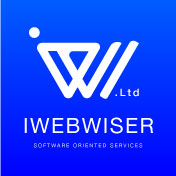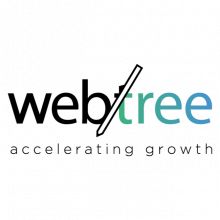
There are 9 Companies in Bahrain
that provide Angular Development Services!
Bahrain is a gateway to the GCC(Gulf Cooperation Council) region offering great access to Saudi Arabia’s market. Global IT companies choose Bahrain as a hub due to the availability of talent, cost competitiveness, ownership structure, and market access to the overall region.
Discover Top IT Companies in Bahrain specialized in Angular and other related services. Find the best IT service providers for your projects.
Angular (formerly AngularJS) is a popular open-source web application framework maintained by Google and a community of developers. It's used for building dynamic, single-page web applications (SPAs) and web-based applications in general. Angular provides a structured and organized way to create complex web applications by extending HTML with additional features and enabling the development of interactive, responsive, and maintainable front-end web interfaces.
Handpicked companies • No obligation to hire • 100% risk-free
Featured Companies in Bahrain
This month, the following Angular Development companies managed to provide an outstanding service and support. It's worth taking a look.
Explore Top Angular Development Companies in Bahrain
Webtree Software Solutions delivers innovative digital media and cutting-edge software development, empowering businesses to thrive globally.
Services:
SANARA INFOTECH is an undefeatable source of digital transformation technologies and techniques.
Services:
CXCoast Technology Solutions & Consulting is a Bahraini digital transformation partner serving startups, enterprises, and governments across the GCC.
Codibyte is a leading software development company dedicated to creating innovative and efficient digital solutions for businesses of all sizes.
We are a Digital services Provider and IT consulting Company. We offer a wide range of services comprising various domains holistic solutions.
EqualPixels is a full-service digital agency offering cutting-edge web design, web development, mobile app development, and e-commerce solutions.
Services:
Filter Angular Development Companies in Bahrain by Cities
Find the right tech company near you or from a specific city. Some of the best companies might be located in smaller cities.
Find more Angular Development companies around the world
TechBehemoths is the world's most advanced and user-friendly platform to match IT Companies with real clients without hustle.
The ICT in Bahrain: Genuine Data & Profile
Bahrain is a gateway to the GCC(Gulf Cooperation Council) region, offering great access to Saudi Arabia’s market. Global IT companies choose Bahrain as a hub due to the availability of talent, cost competitiveness, ownership structure, and market access to the overall region. According to the World Bank, Bahrain was ranked 2nd in MENA in the ease of doing business index.
According to Payscale, the average web developer salary in Bahrain is 8,400 BHD/year, or around 22,260K USD. This means that per month, a web developer located in Bahrain earns around $1,855.
At the other end of the table, the price per hour of a web development agency varies between $10.7, which is among the most accessible in the region.
Why Work With a Bahrain-based Web Agency
If you are looking for a good price and capable human resources in the Gulf, then Bahrain is a good option to consider. Also, the country has recently become the main hub for ICT companies in the region and a good place to source out talented developers and web designers.
What to Be Aware of When Working With a Bahrain-based Company
Since it’s a good place to source out human resources, you may not always encounter only Bahrain companies, but also agencies from other countries that are trying their luck there. It is possible to experience challenges in communication, project management, and project delivery. In other words, there is a risk of getting the product not in the way you ordered. However, this risk persists everywhere in the world.
Are Bahrain-based Agencies Reliable?
Before working with Bahrain-based agencies, it’s good to do deep research and find a team you consider it’s worth working with. Reading reviews and scheduling calls with several agencies will provide you with more information about how companies from Bahrain work.
How Does Bahrain's IT Sector Relate to Other Countries in the Region?
As mentioned before, Bahrain is considered a gateway to access other markets, but also to explore its own. On the other hand, the small country competes with Saudi Arabia & Qatar on the internet infrastructure segment, offering better speed. Also, the latest numbers show that the Bahrain government continues to invest and support the ICT sector by facilitating connections between local ICT companies and other ones from all over the world.
Overall, Bahrain is a good option and a starting point from which to choose web agencies in the region. Due to its competitiveness and state-supported policies, it is expected that the industry will expand and provide more competition to the neighboring countries.
What is Angular and what are its benefits for your projects?
Angular (formerly AngularJS) is a popular open-source web application framework maintained by Google and a community of developers. It's used for building dynamic, single-page web applications (SPAs) and web-based applications in general. Angular provides a structured and organized way to create complex web applications by extending HTML with additional features and enabling the development of interactive, responsive, and maintainable front-end web interfaces. Here are some key aspects and concepts of Angular:
-
Component-Based Architecture
-
Templates
-
Directives
-
Dependency Injection
-
Services
-
Routing
-
Observable and RxJS
-
Modules
-
Testing
-
Cross-Platform
Angular's structured approach, strong tooling, and vibrant ecosystem of libraries and extensions make it a powerful framework for building modern web applications. It is particularly well-suited for large and complex projects where maintainability and scalability are crucial.
Companies may choose Angular over other front-end frameworks for their projects for a variety of reasons, depending on their specific needs and priorities.
-
Google Backing: Angular is developed and maintained by Google. This association often gives companies confidence in its long-term support, stability, and continuous improvement. Google's involvement is seen as a sign of reliability and commitment to the framework.
-
Mature and Established: Angular has been around for a while and has a strong track record of being used successfully in large-scale enterprise projects. It has a well-defined architecture and best practices, which can be beneficial for maintaining and scaling applications over time.
-
TypeScript Support: Angular is built with TypeScript, a statically-typed superset of JavaScript. TypeScript provides better tooling, code maintainability, and catches errors at compile time, which can reduce bugs and enhance code quality, making it attractive to companies that prioritize robust code.
-
Full-Featured Framework: Angular provides a comprehensive set of tools, libraries, and features out of the box, including routing, form handling, HTTP client, and more. This can save development time and effort compared to integrating multiple third-party libraries in other frameworks.
-
Two-Way Data Binding: Angular offers powerful two-way data binding, which allows for automatic synchronization between the data model and the view. This feature can make it easier to develop interactive and responsive user interfaces.
-
Large and Active Community: Angular has a large and active community of developers and a wealth of resources, including documentation, tutorials, and third-party libraries. This can be beneficial for finding solutions to common problems and getting support when needed.
-
Enterprise-Ready: Angular provides features like dependency injection, modularity through modules, and a strong emphasis on testability. These characteristics are well-suited for building robust and maintainable enterprise-level applications.
-
Strict Coding Standards: Angular enforces a set of coding standards and best practices, which can lead to more consistent and readable code. This can be important for companies with multiple developers working on the same codebase.
-
Cross-Platform Development: Angular can be used for building both web and mobile applications. Companies looking to develop applications for multiple platforms may choose Angular for its ability to share code between web and mobile apps using technologies like NativeScript or Ionic.
-
Integration with Backend Technologies: Angular can easily integrate with various backend technologies and APIs. This makes it suitable for projects where the front end needs to communicate with different types of server-side applications.
-
Security Features: Angular provides built-in security mechanisms to help prevent common web vulnerabilities like Cross-Site Scripting (XSS) and Cross-Site Request Forgery (CSRF). This can be crucial for projects with high security requirements.
-
Ecosystem and Tooling: Angular has a rich ecosystem of tools, extensions, and IDE support, including Angular CLI for project setup and management. This can streamline development workflows and improve productivity.
Ultimately, the choice of Angular or any other framework depends on the specific project requirements, the development team's expertise, and the company's long-term goals. Companies evaluate various factors to determine which framework aligns best with their needs, resources, and priorities.








